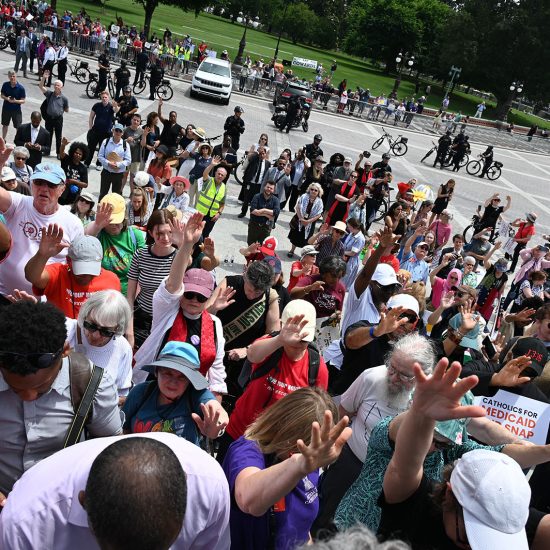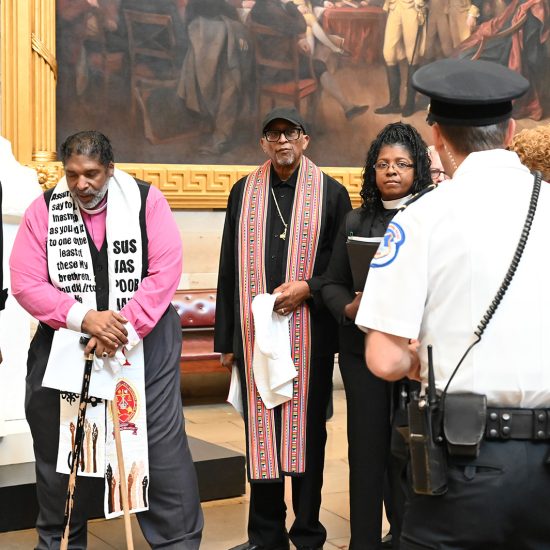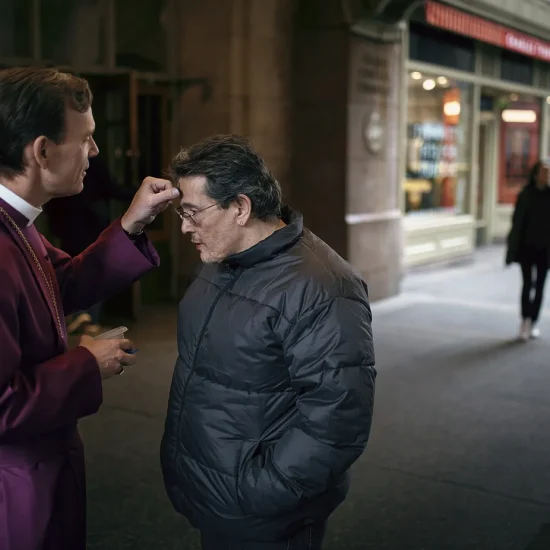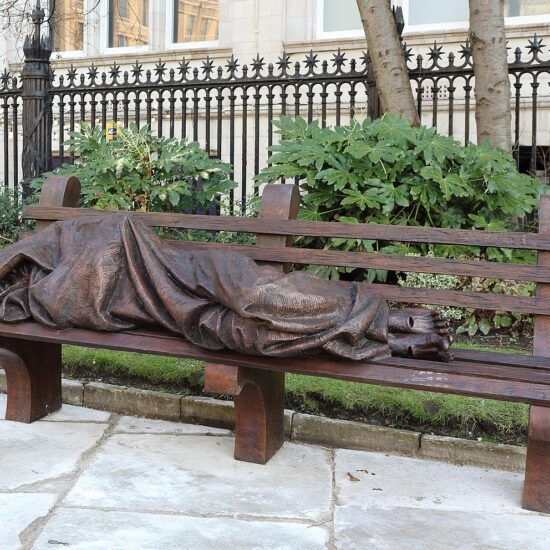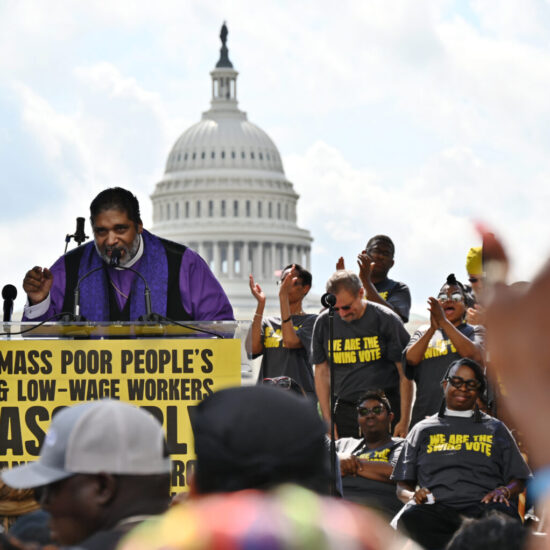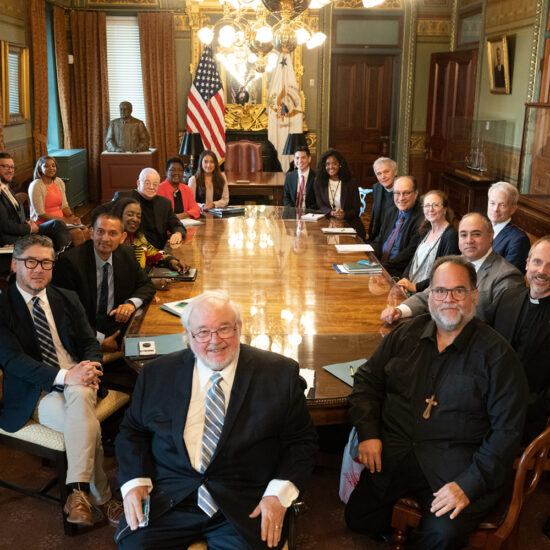By Ken Camp
Texas Baptist Standard
DALLAS (ABP) — Any so-called gospel that fails to take seriously Jesus’ proclamation of good news to the poor lacks authenticity, Nathan George decided a few years ago. And that belief led him to found Trade as One — a company that helps poor and marginalized workers by bringing together markets and missions.
And as a primary provider of Good News Goods, George is providing a venue for members of Baptist churches to do Christmas shopping with a clear conscience.
George grew up in India and in various parts of the Middle East as a missionary kid, while his parents served with Operation Mobilization. But in spite of his Christian upbringing, after about 15 years in business with telecommunications and software companies, he felt something lacking in his understanding of the call to discipleship.
“Five or six years ago, I began re-examining the call of the gospel,” he said. In the process, he became captivated with Jesus’ declaration that he came to preach good news to the poor.
“I wanted to know how business, the kingdom of God and good news to the poor could all fit together,” he said. “God’s heart beats for the poor.”
George came to the conclusion God created human beings for meaningful work.
“The absence of work is a missions issue,” he determined. And helping disenfranchised people find purpose in their labor and giving them the ability to provide for themselves and their families are ways Christians can contribute to “restoration of the Eden vision.”
George and his wife, Catherine, discovered multiple small businesses in developing nations that were providing jobs with fair wages, but those businesses needed someone to help connect them to potential buyers in the affluent West.
The Georges began operating a market for those goods once a month through the 200-member Baptist church they attended in Cranleigh, England, about 40 miles south of London. Through that “low-profile, regular presence,” they raised awareness about fair trade in their community and sold about $15,000 a year in what are known as "fair-trade" goods, George said.
In time, the couple felt God’s call to make that avocation their full-time job, and they relocated to Santa Cruz, Calif. They built Trade as One around fair-trade practices — no slave labor or child labor, safe workplaces, fair wages to workers, environmental sustainability and profit to producers rather than middlemen.
Trade as One works with 62 producer groups in 28 nations throughout Asia, Africa and Latin America. The company only does business with producers that are fair-trade-certified or with whom Trade as One or a trusted organization such as World Vision is directly acquainted.
“We buy from suppliers in-country and pay them up front to provide them working capital,” George explained.
Products fall into two categories. Consumable goods include coffee, tea, rice, olive oil, lotions and cosmetics. Non-consumable goods include scarves, handmade jewelry, bags, bowls and rugs.
“We won’t sell products that people don’t need,” George said. “Spending habits and stewardship are discipleship issues.”
Americans spend more on cosmetics and Europeans more on ice cream than it would cost to provide education and sanitation for the 2 billion people who go without both, he noted.
Trade as One operates no storefronts. It sells through individuals who host home parties, through direct Internet commerce and through partnerships with churches that take orders or sell products.
The company recently entered into a close working relationship with the Baptist General Convention of Texas Christian Life Commission through its Good News Goods initiative.
Good News Goods enlists churches to serve as host sites for one-day or weekend fair-trade markets or as ongoing trading posts where people in the congregation and the surrounding community can order fair- trade consumable goods on a regular basis.
Trade as One serves as the primary provider for Good News Goods. Another is WorldCrafts, a nonprofit ministry related to the Southern Baptist Woman’s Missionary Union. WorldCrafts imports handcrafts from 38 countries and markets them in the United States. Good News Goods also will work directly with developmental ministries related to the Baptist World Alliance and the Cooperative Baptist Fellowship.
In addition to providing buyers with quality goods and producers with fair compensation for their work, 10 percent of sales from products purchased in Good News Goods markets in BGCT-affiliated churches directly benefits the Texas Baptist Offering for World Hunger.
While the initiative officially launches in January, two Texas Baptist churches — Wilshire Baptist in Dallas and First Baptist in Austin — piloted Good News Goods events recently, in time for church members to shop for Christmas presents.
“People were surprised by the quality and variety of the products,” said Mindy Logsdon, Wilshire's minister of missions.
Because the church is in the middle of a construction project, the Good News Goods market had to be divided into three venues in different parts of the facility. Wilshire volunteers staffed each site, explaining the stories behind the products, showing a video provided by Trade as One and operating a sales machine.
In a single Sunday-morning event that was not advertised outside the church’s membership, Wilshire sold $5,555.54 in goods.
“When you do something that’s a little out of the ordinary, there’s always someone who doesn’t like it. But I honestly didn’t hear any negative feedback,” Logsdon said.
“What I heard was how glad people were to be able to buy fair-trade products — to spend their money on products without having to worry about the use of child labor and to know the people who produced them received fair wages.”
CLC Director Suzii Paynter presented the idea of a Good News Goods market to her Sunday school class at First Baptist in Austin. Steve Mines, an attorney who grew up as a missionary kid in Argentina, took the lead in contacting Trade as One and organizing the event.
“We did not have much time to advertise this to the church. It made it into one church newsletter and a short, short video clip in worship. The following week, I held my breath, wondering if our folks would support it,” Pastor Roger Paynter said.
On the day of the market, a Trade as One representative spoke briefly at the close of the Sunday morning worship service. He explained that the sale of Good News Goods products would — in part — provide employment for young women in developing nations, allowing them the opportunity to escape from the sex-trafficking industry.
“In a matter of a few hours, our church purchased $11,000 in fair-trade products, shocking the folks from Trade as One with our generous response,” the pastor said, noting it was Trade As One’s second-highest one-day sales total ever.
Paynter said members told him they appreciated the opportunity to purchase quality items and make a difference in someone’s life at the same time. First Baptist plans to set up an ongoing trading post where people can subscribe to consumable goods on a regular basis, he added.
“I have long contended that the church frustrates people who want to act on their faith but have very few, tangible outlets. I think that part of the success of Habitat for Humanity is that people can literally put their faith in action, pick up a hammer, see a result. Good News Goods has the same appeal,” he said.
“You purchase a beautiful, unusual item while helping a woman or child find a chance to move out of the horrors of the sex-slave industry and you do it with an organization rooted in Christ. What could be better?”

